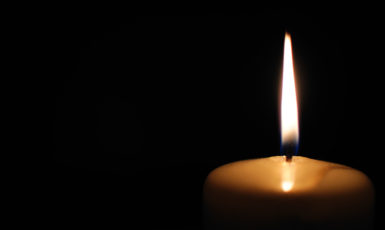
ב''ה
 Subscribe to our
Subscribe to ourIt is important to set limits in intensity and length of time for mourning. Even before the Flood, there was a tradition of observing seven days of mourning. In Genesis 7:4, G-d told Noah, “For in another seven days’ time I will send rain upon the earth…” Rashi explains this verse based on the Midrash, as follows.
These are the seven days of mourning for the righteous Methuselah. For the Holy One, Blessed is He, spared his dignity and delayed the punishments. [This refers to the Flood, so that the generation’s mourning for Methuselah could be properly expressed.] Go and calculate the years of Methuselah. You will find that they end in the six hundredth year of the life of Noah. [That is when the Flood came].
The following suggestions for funeral and memorial services were provided to Ask Noah International by Rabbi Immanuel Schochet o.b.m.:
All or part of the following prayer may be recited (not more than once daily) during the funeral, memorial gathering, week of mourning, anniversary of passing, or other special occasions that are deemed appropriate.
May G-d remember the soul of [mention the deceased person’s given names], son/daughter of [mention the given names of his/her parents*] who has gone on to his/her world. By virtue of my praying on his/her behalf, and – without making a vow – my intent to donate to charity on his/her behalf, may his/her soul be bound in the Bond of Life together with the souls of the righteous, and let us say: Amen.
*If the names of at least one parent are not known, use Noah if the deceased is a Gentile, or Abraham if the deceased is a Jew.
All or part of Psalm 49 and/or Psalm 139 may be recited as meditations on life. The mourners or eulogist may recite Psalm 23.
The following may be included in the funeral service:
The Rock – His working is perfect, for all His paths are justice; a G-d of faithfulness and without iniquity, He is righteous and fair! (Deuteronomy 32:4)
We know, G-d, that Your judgment is righteous; You are righteous when You speak and pure when You judge. There is naught to murmur about the way of Your judgment. You are righteous, G-d, and Your judgments are fair.
G-d gave, and G-d took; blessed be the Name of G-d!
As a principle for life, it’s important to have faith and trust in G-d’s active Divine Providence over all details and occurrences in creation. (Torah views pagan-based practices such as self-mutilation or tearing out patches of one’s hair during mourning as sinful.) One should keep in mind Psalm 100:2, which encourages serving G-d with gladness and joy.
